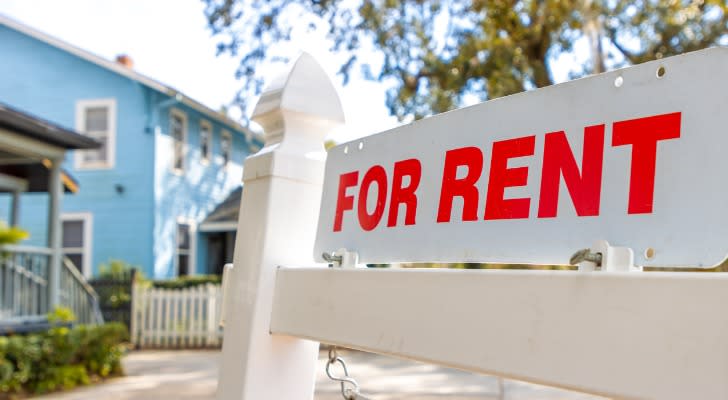[ad_1]

I’m 50 and my husband is 57. We paid off all debts and have $1 million in our 401(k) and IRA. We also own $1 million in rental properties that give us a $5,000 net profit monthly. We hope to keep the rental homes for another 15 years for income. We have $200,000 in savings earning 4.75% interest and another $250,000 in other investments that can earn about 10%.
Our daily life is minimal, simple and basic, but we love to save money for traveling. We estimate the cost is $30,000-$40,000 per year. Can we retire in five years or should we continue to work? Should we keep the rental homes longer or invest in First Nation Realty Partners (FNRP) when we start to retire?
– Elizabeth
It sounds like you are probably in a pretty good position for retirement, but you’ll need to compare your assets against your income replacement needs to know if they’re sufficient. It’s also very important to consider your desired lifestyle and risk tolerance – these considerations can help you determine how sustainable your retirement income will be. What may work for someone else may not be best for you, even if the math is exactly the same. (And if you need more help building a plan for retirement, consider speaking with a financial advisor.)
Do You Want to Manage Rental Properties in Retirement?

This is a straightforward question I recommend asking yourself irrespective of the income you expect to receive from it. Managing rental properties isn’t as passive as collecting a distribution check from a 401(k) or IRA. Some people find that they’d rather not manage properties in retirement. For others, the hassle is well worth it.
It sounds like you and your husband are pretty sure it is for you so it could make sense to hold on to the properties. I would base that decision primarily on how it fits into your desired retirement lifestyle.
If you do decide to sell those properties and reinvest the proceeds, I don’t think you should limit yourself to one option, whether it’s FNRP or something else. Instead, consider how your overall allocation supports your income needs and protects your principal. (A financial advisor can help you make major financial decisions, like whether to buy or sell a property in retirement.)
Managing Your Investments to Increase Gains and Prepare for Withdrawals
Generally, it’s better not to get more aggressive as you get closer to retirement. Doing so exposes you to a bad sequence of returns, and could put your retirement security at risk. Of course, “more aggressive” is a relative phrase and I’m not sure how aggressively you are invested right now. It’s also possible that you are invested too conservatively such that your portfolio might not sustain distributions long enough. You have to strike a balance between long-term gains and short-term distributions.
Investing somewhere between 50% and 70% of your portfolio in equities is usually a good range for most retirees, but you need to consider your other income sources and your attitudes toward investment risk. It’s not just a simple rule of thumb, but rather something far more personal. (And if you need help finding the right asset allocation in retirement, consider matching with a financial advisor.)
So, Can You Retire in 5 Years?

In five years your husband will be 62 and you’ll be 55. Those ages matter to a retiree for a few reasons.
Your husband will be at the minimum age to start collecting Social Security. It may or may not be the best time for him to claim Social Security, but I want to encourage you to think through that decision and not claim simply because he is retired and is eligible. It often makes sense to delay even after you technically retire, especially if you’re not in dire need of the payments yet.
Since you won’t be at least 59.5 in five years, if you withdraw from retirement accounts that are in your name, you may be hit with a 10% early withdrawal penalty. A significant caveat to this is the Rule of 55. If your 401(k) plan allows it, you may be able to avoid the penalty if you withdraw directly from your 401(k) after you separate from service at your job. (A financial advisor can help you make a tax-efficient plan for withdrawing your retirement savings.)
Bottom Line
Figure out a desired retirement budget based on your lifestyle choices. Compare that against your retirement income sources to determine if it’s sustainable and falls within an acceptable level of risk. From there, decide how your options might align with your lifestyle preferences.
Tips for Finding a Financial Advisor Who Can Help
-
If you don’t have a financial advisor yet, finding one doesn’t have to be hard. SmartAsset’s free tool matches you with up to three vetted financial advisors who serve your area, and you can have free introductory calls with your advisor matches to decide which one you feel is right for you. If you’re ready to find an advisor who can help you achieve your financial goals, get started now.
-
Consider a few advisors before settling on one. It’s important to make sure you find someone you trust to manage your money. As you consider your options, these are the questions you should ask an advisor to ensure you make the right choice.
Brandon Renfro, CFP®, is a SmartAsset financial planning columnist and answers reader questions on personal finance and tax topics. Got a question you’d like answered? Email AskAnAdvisor@smartasset.com and your question may be answered in a future column.
Please note that Brandon is not a participant in the SmartAdvisor Match platform, and he has been compensated for this article. Questions may be edited for length or clarify.
Photo credit: ©iStock.com/Ajax9, ©iStock.com/shapecharge
The post Ask an Advisor: We Have $1.45M Saved, Plus $1M in Rental Properties That Make Us $5K Per Month. Can We Retire in 5 Years? appeared first on SmartReads by SmartAsset.
[ad_2]
Source link
